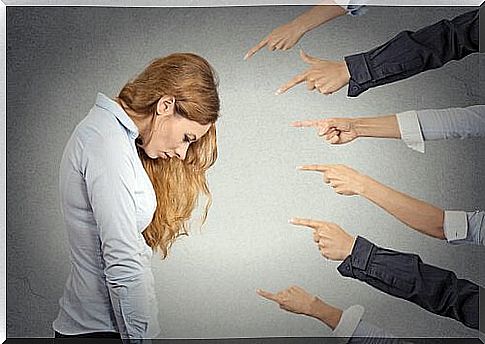Judging Others: A Common Habit Among Frustrated People

Whatever their religion, social condition or origin, people are dying for justice to be applied in society.
To speak of justice implies to address innumerable questions.
However, in this article we are going to focus on something that has nothing to do with Canon Law, but rather with the psychological feeling of judging others and being judged in everyday life.
We could say that some people do not judge situations on an ad hoc and isolated basis, but they assume the role of judge for the small events of the existence of others, without anyone asking them anything.
Obviously, this is a mistake, because even a professional judge should not exercise his role outside the courtroom.
So why is society filled with false judges? Why do some people think their value judgments are valid? How did they get to this point?
It would therefore be interesting to observe some common characteristics of these improvised judges, who have neither dress nor white wig; but who sometimes allow themselves to execute painful and toxic sentences to all those around them.

People who judge others:
– Generally, they hate a large part of their life. Therefore, they try to intoxicate the lives of others, as much as possible.
– They are not satisfied with what they are doing and they take very badly the fact that someone is satisfied.
– They are not easy to detect because they are not cold people. They don’t usually have bad feelings either.
However, they are highly frustrated and the frustration leads to aggression, which can manifest itself in different ways.
– They are tormented and worried about the decisions they have taken, which were not really wanted.
– They like to justify their life choices by denigrating the lives of others. Often they will say: “After all, I’m not that bad, look at X”.
– Undoubtedly, they are about people and not about ideas.
– They give their opinion on others, not from a global point of view that would include both the failures and the successes of the person, but they judge based on generalizations that anchor them in reductionism, stupidity and subjectivity .
– They have values that do not serve to appease them or to help those around them, but to judge others on an ongoing basis.
– They have few hobbies and activities that they find interesting.
– They are not very self-critical of what they accomplish. They don’t like to feel judged on a task that would require them to demonstrate their involvement.
– They are easily irritable.

– According to them, the successes of others are due to external, unstable and specific causes, and theirs are due to internal causes, stable and not specific to the situation.
In other words, their success is justified, and that of others is usually the result of chance.
– Usually, they do not express their opinion in the presence of many people. It doesn’t sound interesting to them, so they just highlight it.
– Their criticisms mostly reflect their desire to experience what life has denied them or what they have failed to achieve.
– They don’t try to improve themselves. They consider that the best way to put themselves forward is to reduce the value of the people around them.
– Their judgments can be light and private or dangerous and public.
You should ignore these people and never offer them the chance to hurt your personal or professional reputation in front of a large number of friends, certain family members, or any other audience.
In the face of such people, the only useful weapon is ignorance. However, you need to be on your guard and prepare yourself so that they don’t overstep your privacy limits in an inappropriate way.









